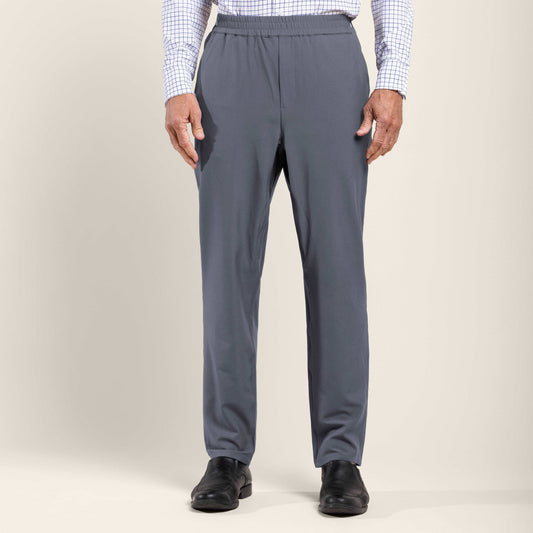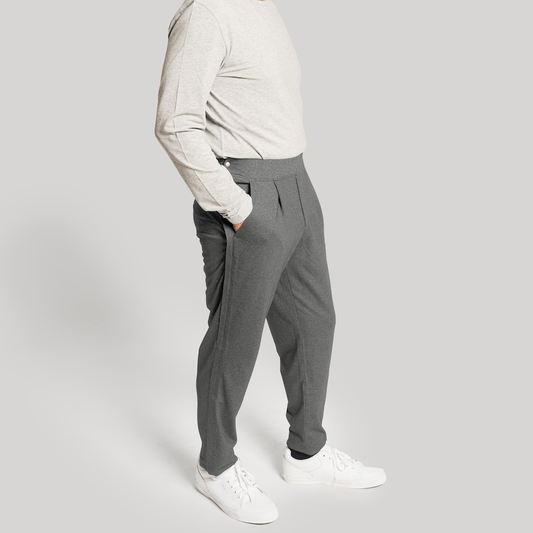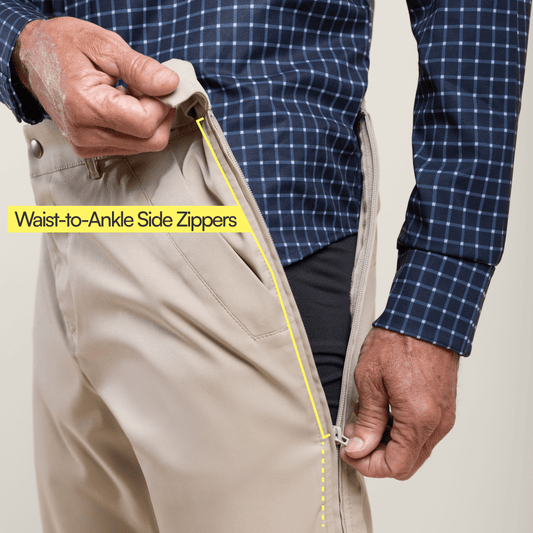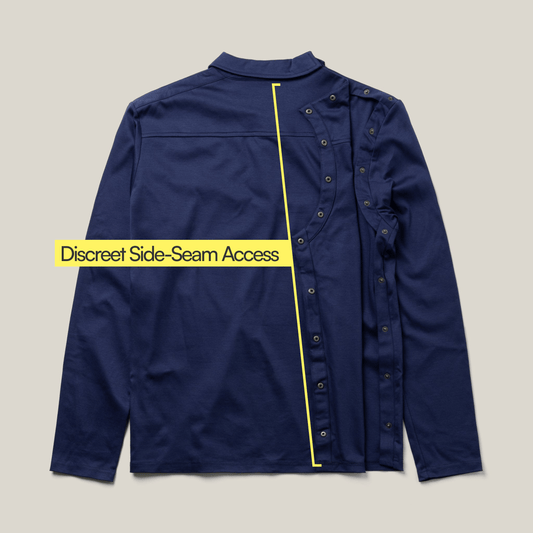Adaptive Clothing for people after mastectomy is a significant piece of their recovery journey, which isn't just comfortable but flattering and empowering. I am able to demonstrate the transformative power of adaptive clothing to redefine style and comfort based on my close friend's mother's experience because I have firsthand knowledge about the after effects of mastectomy surgery.
Let's delve into some of the aspects
People frequently experience physical discomfort following a mastectomy because of the incisions, drains, and changes in body shape. This discomfort can be exacerbated by traditional clothing, which has rigid construction and tight fitting. On the other hand, adaptive clothing was specifically created with these obstacles in mind. Comfortable fabrics, a seamless construction, and features that can be adjusted all aid in relieving pressure points and providing gentle support where it is most needed.
For instance, tops with hidden access points make it simpler to manage drains and dressings without sacrificing style, while bras with front closures and pockets for prosthetics offer convenience and comfort. Beyond its practicality, adaptive clothing is essential for regaining confidence and a sense of normalcy. A mastectomy can alter a person's self-perception and relationship with their body for many people.
The sudden loss of a breast or breasts can cause feelings of body dysmorphia and insecurity. At these times, clothing is more than just a material; it becomes a way to express oneself and accept oneself. Adaptive clothing brands perceive this need and endeavor to offer an assorted scope of styles that take care of various preferences and inclinations.
There is something for every occasion, from comfortable loungewear to sophisticated evening wear, allowing individuals to reclaim their individual style on their own terms. Additionally, adaptive clothing serves as a visible reminder that conventional standards of beauty and femininity are not defined by conventional standards.
These brands challenge the narrow ideals of mainstream fashion by featuring diverse models and celebrating real bodies, promoting inclusivity and body positivity. In addition to providing individuals who have undergone a mastectomy with a sense of empowerment, this inclusive approach encourages a greater level of acceptance and comprehension throughout society as a whole.
P.O.V: In my companion's mother's case, finding adaptive clothing was a distinct advantage in her recovery process. She had a hard time finding clothes that fit well and made her feel like she was back after her mastectomy. Even simple tasks like getting dressed became sources of frustration and anxiety because traditional bras were out of the question. Notwithstanding, when she coincidentally found a brand work in adaptive clothing design, everything changed. She suddenly had options: beautiful clothes that were thoughtfully designed to fit her reality without sacrificing style. As she tried on various outfits, the joy and relief on her face were palpable, a tangible reminder of the transformative power of adaptive clothing in restoring a sense of normalcy and boosting confidence.
Impact of Right Post-Mastectomy Clothing
The impact of mastectomy clothing on patients' lifestyles is multifaceted, touching on physical comfort, emotional well-being, and practicality. Let's delve into each aspect in detail:

1. Physical Comfort
Mastectomy clothing is explicitly intended to address the interesting requirements and difficulties faced by people post-medical procedures. Conventional attire frequently includes tight creases, underwire, or organized plans that can disturb delicate surgical sites and cause inconvenience. Mastectomy clothing, on the other hand, places an emphasis on seamless construction, supple, breathable fabrics, and adjustability to reduce friction and pressure points. Patients are able to move around more freely and carry out their day-to-day activities without experiencing unnecessary pain or discomfort as a result of this improved comfort. The right clothes can make a big difference in how people feel physically throughout their recovery journey, whether they are relaxing at home, running errands, or going to appointments.
2. Emotional Well-being
It is impossible to overstate the psychological impact of mastectomy clothing. A mastectomy can elicit a wide range of complex emotions, including grief, loss, and insecurity, in many patients. The abrupt changes to one's body can challenge one's feeling of personality and femininity, prompting healthy identity cognizance and self-perception issues. Mastectomy clothing assumes an essential part in moderating these worries by offering pieces of clothing that are comfortable as well as complementing and empowering. By giving choices that oblige prosthetics, offer inclusion and backing, and celebrate assorted body shapes, mastectomy clothing reaffirms patients' feelings of pride, certainty, and self-esteem. They are able to regain control over their bodies and express themselves authentically, regardless of how they look.
3. Practicality
Clothing for mastectomies is made to be practical, catering to the particular requirements and difficulties of people recovering from surgery. For instance, numerous garments have hidden pockets, adjustable straps, and front closures to accommodate drains, dressings, and prosthetics. Patients will be able to carry out their day-to-day activities with confidence and ease thanks to this thoughtful design, which does not sacrifice style or functionality. Mastectomy clothing provides practical solutions that simplify the recovery process and encourage independence, such as attending medical appointments, participating in physical therapy, or returning to work.
What to wear immediately after mastectomy surgery?
Comfort, support, and ease of dressing are crucial immediately following breast cancer surgery to speed up healing and reduce discomfort. Here is a guide on what to wear during this crucial period:
1. Soft, Loose-Fitting Clothing
Tops and bottoms made of breathable fabrics like cotton or modal should be soft and loose-fitting. These fabrics are gentle on delicate skin and minimise irritation and discomfort by reducing friction against surgical incisions. Additionally, loose-fitting clothing facilitates optimal healing by allowing for unrestricted movement and airflow.
2. Front-Closure Bras or Camisoles
Front-closure bras and camis are ideal for immediate post-surgery because they don't require you to move your arms overhead. Look for bras with soft cups, wide straps, and front closures with hook-and-eye or zipper fastenings that are made specifically for post-mastectomy recovery or surgery. These breast cancer bras after surgery accommodate dressings, drains, and surgical sites while also providing stability and comfort.
An adaptive bra is important after mastectomy surgery for several reasons. First, it is comfortable using soft materials and a simple design that does not irritate sensitive skin or surgical wounds. Second, adaptive bras are the support you need because surgery can change the shape of your breasts, which can be uncomfortable and painful. Third, these bras come with pockets or inserts to securely hold the breast implants, ensuring a symmetrical and natural look. Adaptive bras also solve aesthetic concerns by offering a variety of styles, colours and designs, allowing people to feel confident and happy with their appearance after surgery. Finally, it promotes health by maintaining proper circulation and preventing problems such as lymphedema. In general, adaptive bras or post breast cancer clothing are an important part of post-mastectomy patients, promoting physical recovery and emotional well-being during the difficult period of recovery.
3. Compression Garments
Depending on the kind of medical procedure and individual requirements, pressure garments might be recommended to diminish swelling, advance circulation, and offer extra help. The purpose of seamless compression bras or camis with adjustable straps is to provide targeted compression and comfort without restricting mobility.
4. Easy-On, Easy-Off Clothing
Dressing can be difficult right after surgery, especially if arm movement is restricted or mobility is limited. Dressing and undressing can be made easier with cancer adaptive clothing that has easy closures like Velcro, snaps, or elastic waistbands. Wearing clothing with buttons, zippers, or sleeves that are too tight can irritate surgical sites and make mobility restricted.
Check out the adaptive clothing at Joe & Bella as we have launched our new adaptive clothing line for both men and women, including adaptive nightgowns for women. Our mission is to make the best adaptive clothes in the world. We believe everyone should be able to wear the style and quality of clothing they love, regardless of physical or mental changes. There should be no more stress and pain getting dressed.
5. Options for Layering
During the varying phases of post-surgery recovery, layering allows for flexibility and temperature regulation. Consider wearing a delicate, lightweight sweatshirt or robe over your tops for added warmth and inclusion when required. Choose designs with an open front that are easy to put on and take off without raising the arms.
6. Comfortable Undergarments
Soft, seamless underwear that won't dig into surgical incisions or make you uncomfortable is as important as supportive bras or camisoles. Consistent clothing produced using breathable, moisture-wicking textures forestalls scraping and irritation, advancing optimal comfort and cleanliness during recovery.
7. Slip-On Shoes or Slippers
Footwear plays a crucial part in keeping up with stability and preventing falls, particularly during the underlying recovery time frame when balance and versatility might be compromised. For convenience and safety, opt for slip-on shoes or slippers with non-slip soles. Keep away from shoes with bands or clasps that require bending or reaching to fasten.
8. Accessories for Comfort
During the recovery process, think about including accessories that improve comfort and encourage relaxation. Neck pillows or cushions offer support and relief when sitting or reclining, while soft, cozy blankets or shawls provide warmth and comfort during rest periods.
Conclusion
In conclusion, adaptive clothing for people who have had a mastectomy is more than just practical; it is a symbol of hope, perseverance, and self-expression. By focusing on solace, style, and inclusivity, these brands are not simply rethinking design; they're reclassifying feeling wonderful and entire despite affliction. Make sure to talk to your doctor or the people who performed the surgery for personalized advice on what to wear afterward and how to recover based on your specific needs and the procedure you had.
By enhancing physical comfort, promoting emotional well-being, and addressing practical concerns, post-mastectomy clothing has a significant impact on patients' lifestyles. By offering articles of clothing that are both useful and sharp, mastectomy clothing enables people to explore their recovery process with poise, certainty, and versatility. It serves as a tangible reminder that strength, courage, and self-love define beauty and femininity rather than conventional standards.
John Francis, an associate at Thronecliffe Place, a retirement community in Canada where he witnessed the daily challenges older adults face with getting dressed or conducting regular chores due to their numerous mobility concerns. Adaptive apparel exudes the perfect statement: "Fashion is to Liberate." I hope you all find this article helpful in upgrading your fashion to meet your needs.
Joe & Bella's Adaptive Apparel Collections:
Men's Adaptive Clothing | Women's Adaptive Clothing | Men's Adaptive Shirts | Women’s Adaptive Shirts | Men's Adaptive Pants | Women’s Adaptive Pants | Gripper Socks | Side Zipper Pants | Compression Socks | Best Adaptive Clothing | Adaptive Apparel

























































